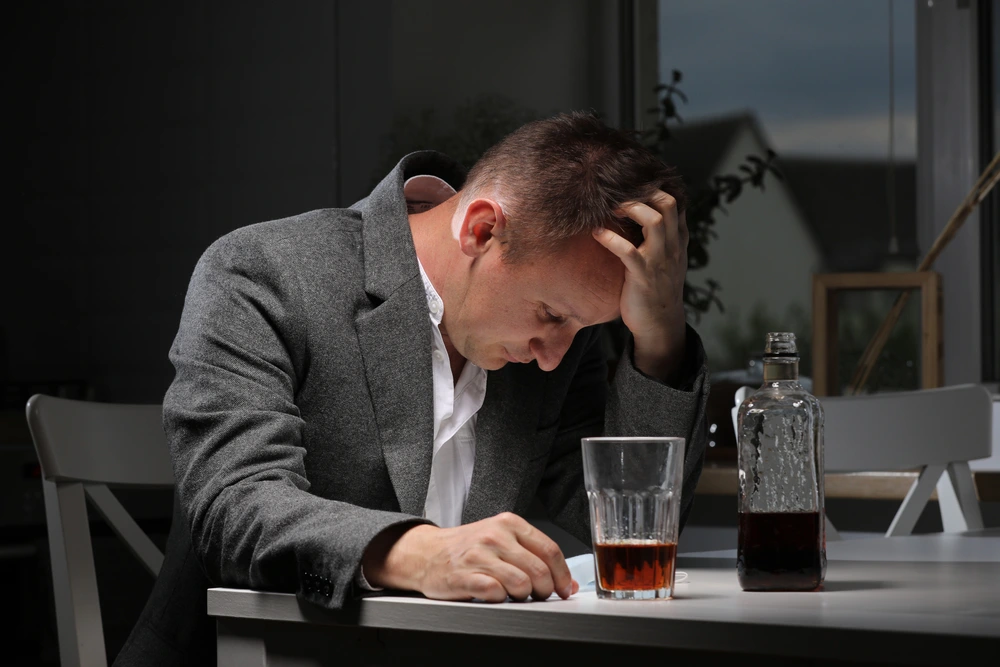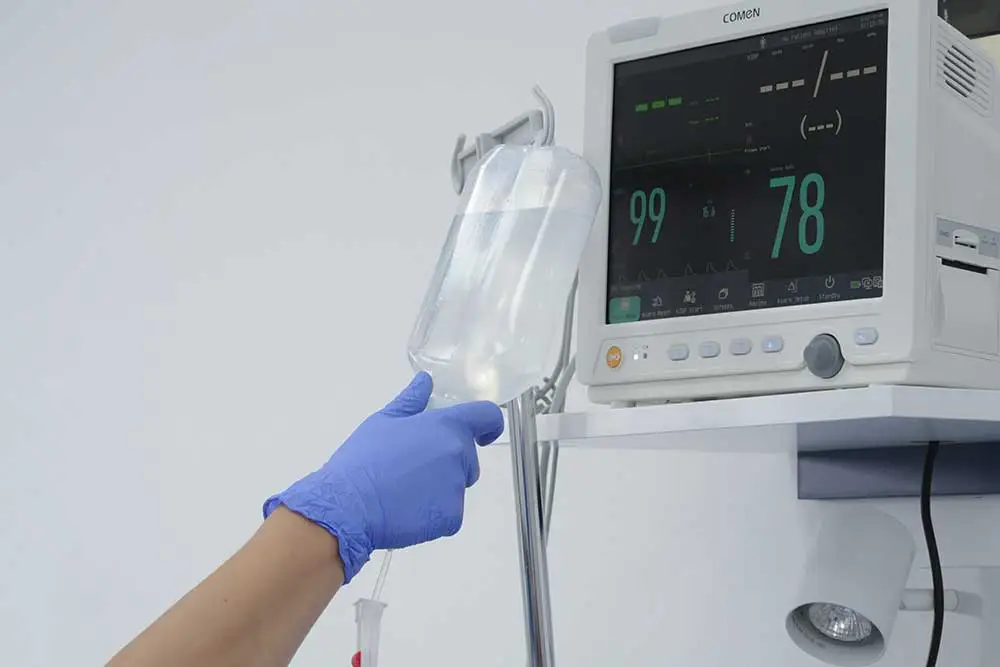Heroin is a so-called “opioid street drug” derived from morphine, a natural substance extracted from the pods of the opium poppy plant. Opiates are legally prescribed drugs that provide powerful analgesic properties. They help many people with chronic pain lead more productive lives. All opiates, including heroin, have a high potential for abuse and the development of physical dependence. However, addiction is treatable, and it is possible to overcome it, especially if medications are used to come off heroin under medically controlled conditions.
People who use heroin often start by snorting or smoking the drug, which produces intense feelings of euphoria. However, as physical dependence develops, those who snort or smoke heroin may begin injecting it into their veins to achieve a stronger effect. Opioid narcotic use carries health risks, including infection with blood-borne pathogens, leading to chronic conditions such as HIV/AIDS and hepatitis.
Heroin is highly addictive because it enters the brain rapidly, crossing the blood-brain barrier. Over time, teenagers and others who abuse heroin develop a tolerance to the drug, meaning they require more heroin to feel its effects. It is easy to become addicted to heroin, as well as physically dependent on the drug. Physical dependence occurs when a person’s body adapts to the effects of heroin, leading to withdrawal symptoms when use is significantly reduced or stopped. Heroin withdrawal symptoms can occur as soon as two hours after the last use of the drug. Heroin withdrawal medication helps individuals overcome these symptoms, which can be very intense.
Heroin is a highly addictive drug that poses a significant danger to adolescents, as well as to all other social groups. Heroin abuse can lead to serious social, educational, psychological, and legal consequences, as well as numerous health problems. Heroin withdrawal medication is used in the addiction treatment clinic to help individuals overcome the withdrawal period.
Heroin Withdrawal Medications - What is Heroin Addiction?
Heroin addiction is a chronic disease characterised by changes in the brain and uncontrolled drug-seeking behaviour despite negative consequences. Heroin withdrawal symptoms occur shortly after the last dose, and heroin withdrawal medications help to relieve these intense feelings.
Heroin is a synthesised opioid analgesic derived from the Asian opium poppy plant. When used, heroin is converted into morphine in the body. This substance is used on the streets as a recreational drug, commonly referred to as black tar, smack, brown, or tar. Upon first use, individuals experience a rush of pleasure, a sense of well-being, and joy. These strong feelings associated with the drug lead users to seek more, quickly resulting in the development of tolerance and the onset of addiction.
Heroin can be abused in a variety of ways; it can be injected intravenously, inhaled as a powder, or smoked. Each method of use allows the drug to quickly cross the blood-brain barrier and reach the brain directly.
When heroin enters the brain, it is converted back into morphine, binding to opioid receptors located throughout the brain and body. Opioid receptors are involved in the perception of pain and the sensation of reward, which is why heroin use increases feelings of pleasure and reduces pain. Addiction develops quickly, but anti-heroin medications are highly effective in treating the condition.
Chronic use of heroin eventually alters the structure and functioning of the brain, leading to tolerance and addiction. Physical dependence on heroin occurs when an individual develops a need to continue using the drug to avoid unpleasant withdrawal symptoms. Psychological dependence arises when an individual firmly believes they cannot function without heroin. Both forms of heroin addiction are addressed within an appropriate rehabilitation setting. Addiction clinics use heroin withdrawal medications, which effectively support the treatment process. The treatment is painless and safe.
Worrying Data on Heroin Addiction
More than 50 million people worldwide are reported to use heroin, cocaine, and other synthetic drugs. In 2011, 4.2 million Americans aged 12 and over reported having used heroin at least once in their lifetime, representing 1.6% of the population. Additionally, it is estimated that approximately 23% of individuals who have used heroin have become dependent on it.
Statistics in other parts of the world are also shocking. The European Union reports that there are more than one million heroin users in Europe, according to data up to June 2022. Of these, only 25 percent of users sought help and treatment for heroin addiction, while 75 percent continued to use heroin. If assistance, such as heroin withdrawal medications, is not sought in time, there is a very high risk of a heroin overdose and a potentially fatal outcome.
According to the 2012 Monitoring the Future study, 0.05% of eighth graders and 0.6% of high school students reported having used heroin at least once in their lives. Abuse of prescription opiates can lead some teenagers to use heroin, as the illegal drug is far easier and cheaper to obtain than prescription medications.
It is estimated that nearly a quarter of people who experiment with heroin become addicted.
Heroin Withdrawal Medication – Why Does Addiction Develop?
The development of heroin addiction is a real and significant concern. Many individuals who begin using this so-called “recreational” drug believe they won’t become addicted, but they should keep in mind that addiction is almost inevitable. Addiction is not something you choose, but rather an inevitable outcome. However, heroin withdrawal medication can help in overcoming addiction.
Risk Factors for the Onset of Heroin Addiction:
- Male individuals
- Those with a mental illness, such as ADHD
- A lack of family involvement in a teenager’s life
- Anxiety, depression, and loneliness
It is believed that the development of addiction results from several factors working together, leading to the formation of addiction. Some of the most common causes of heroin addiction are:
Genetics: While genetics won’t cause you to start using heroin, once you begin using the drug, your genes can make you more susceptible to addiction. Individuals who have a family member, especially a close relative, with a history of addiction are more likely to develop a similar dependency.
Brain Chemistry: Repeated drug use alters the way the brain experiences pleasure and can cause physical changes to nerve cells. These nerve cells communicate through neurons, and when a person is addicted to a substance like heroin, it disrupts this communication in the brain. As a result, the individual may need to use more heroin to compensate for the lack of neurotransmitters.
Environment: Environmental factors such as family beliefs, peer group attitudes, and friends who encourage drug use can influence an individual’s decision to try heroin. However, it is important to remember that heroin withdrawal medications can play a significant role in treating addiction.
Psychological: Individuals struggling with untreated or undiagnosed mental illness may attempt to self-medicate their symptoms with alcohol or drugs.
However, addiction is not a fully understood condition. Researchers cannot precisely explain why one person becomes addicted to heroin while another does not. Statistically speaking, one in four individuals develops a strong addiction, but heroin withdrawal medications can significantly aid in the treatment process.

Heroin Withdrawal Medications – How Do You Know if Someone Is Addicted?
When you notice that you or a loved one is showing signs of heroin abuse, it’s important to be aware that there are heroin withdrawal medications that can help. It is also crucial to seek help immediately, as delaying treatment can worsen the situation. Addiction treatment is most effective when carried out in a specialised addiction treatment clinic.
The signs and symptoms of heroin addiction will vary among users depending on their genetics, the amount of the drug used, the frequency of use, and the severity of the addiction.
The Most Common Symptoms of Heroin Addiction:
- Depression
- Euphoria
- Sudden mood changes (e.g., anger and happiness)
- Anxiety
- Hostility towards others
- Irritability and anxiety
- Lying about drug use
- Avoiding loved ones
- Weight loss
- Scabs or bruises
- Disorientation
- Hallucinations
- Paranoia
- Reduced attention to personal hygiene
- Possession of burnt spoons, needles or syringes, missing shoelaces, or glass pipes
- Keeping drugs in various places in the house, car, or at work
- Periods of hyperactivity followed by exhaustion
- Inability to fulfil obligations at work or school
- Frequent sleeping
- Apathy and lack of motivation
- Slurred speech
- Shortness of breath
- Frequent respiratory infections
- Changes in diet
- Dry mouth
- Wearing long pants and shirts, even in warm weather
- Traces on hands and feet
- Constricted pupils
- Frequent itching sensations
Heroin is one of the most addictive drugs, and the effects of heroin abuse are incredibly destructive. However, it is important to remember that heroin withdrawal medications are highly effective.
Many teenagers who are addicted to heroin may not be fully aware of the damage that heroin is causing to their lives.
The Most Common Effects of Heroin Abuse:
- Respiratory problems, including pneumonia, depressed breathing, and other lung diseases
- Infection with blood-borne pathogens, leading to chronic conditions such as HIV/AIDS and hepatitis
- Infection at the injection site
- Necrotising fasciitis, a rapid, fatal infection that destroys tissue
- Reduced ability to care for oneself as heroin use and recovery take control of life
- Cardiac complications: pericarditis, endocarditis, atherosclerosis
- Complications from heroin additives, which can cause blood clots to form in the arteries or veins, potentially travelling to the heart, causing a heart attack, stroke, or pulmonary embolism
- Coma
- Overdose and death
Heroin withdrawal medications are effective for people suffering from addiction. This makes the treatment of heroin addiction much easier and painless, with the occurrence of relapse reduced to a minimum.
Heroin Withdrawal Medications – What Is Used in the Treatment?
When a person becomes addicted to heroin or other opioids (such as morphine or codeine), they require treatment and support. Medications for withdrawal from heroin (pharmacotherapy) or other opiates include methadone, buprenorphine, and naltrexone.
Before a person begins a drug addiction treatment programme, it is important to understand what the treatment entails. A doctor experienced in addiction treatment or a counsellor can provide resources, such as heroin withdrawal medications, and explain the process.
A licensed physician may prescribe a regular dose of methadone, naltrexone, or buprenorphine for a person addicted to heroin. It is important to note that at the MedTim clinic, patients do not receive substitution therapy after addiction treatment. The heroin withdrawal medications are used exclusively in the clinic and under the supervision of a doctor.
Methadone as a Heroin Withdrawal Medication
Methadone is a medication used for heroin withdrawal. It is cheaper than heroin and remains active in the body for a longer period. Its effects last for about 24 hours, with the strongest effects being felt 4 to 8 hours after taking the dose. This means that only one daily dose is required.
Methadone reduces risky behaviours such as intravenous drug use and allows individuals to remain stable while making further positive changes in their lives. Methadone treatment can be long-term (months or years) to help a person reduce their risk of using illicit drugs. It can also be short-term (two weeks or less) to assist a person in overcoming addiction.
Methadone is an opioid. Unlike heroin, it does not produce the euphoric sensation commonly associated with heroin use. However, its effects on the body are similar to those of heroin in many other ways:
- Pain relief
- Feelings of general well-being
- Decreased blood pressure
- Slower heartbeat
- Drop in body temperature
Methadone is not suitable for everyone. At the MedTim clinic, expert doctors carefully evaluate each patient before prescribing therapy or medications such as heroin withdrawal pills.
Buprenorphine as an Anti-Heroin Medication
Buprenorphine is an anti-heroin medication and a partial opioid agonist. This means it stimulates the cell receptors that were previously activated by opioid drugs such as heroin and methadone. The drug Suboxone contains buprenorphine.
Buprenorphine is:
- As effective as methadone in managing heroin withdrawal symptoms
- Using Suboxone alone is unlikely to cause an overdose
- Withdrawal from methadone can be unpleasant and long-lasting, whereas withdrawal effects from Suboxone are mild and short-lived
- Only one daily dose (or less) is needed for long-lasting effects
- Long-acting injectable buprenorphine is also available for some patients, with injections given weekly or monthly depending on individual needs
Heroin withdrawal medications are used only under medically controlled conditions.
Drugs for Withdrawal from Heroin – Naltrexone
Naltrexone is an opioid antagonist, meaning it blocks opioid receptors in the brain, reducing the effects of opioids. Naltrexone, used as a drug for withdrawal from heroin, helps to deter heroin use by preventing the user from experiencing the effects of the drug.
- Before starting treatment with naltrexone, the individual must not have used opioids for the previous 7 to 10 days.
- Naltrexone offers faster detoxification compared to methadone.
- Naltrexone itself is not physically addictive.
- Naltrexone does not directly stop a person from wanting to use heroin.
- Naltrexone treatment may only be effective for individuals who are highly committed to giving up heroin.
- Naltrexone works best as part of a comprehensive treatment programme that includes counselling.
Medications for heroin withdrawal at the MedTim clinic are used exclusively under the supervision of professional medical staff.

Heroin Weaning Pills – What Are the Benefits of Heroin Addiction Medications?
- Call the contact centre of the MedTim clinic and obtain information about the details of the treatment
- Attend regular check-ups with your doctor, who will monitor the condition of your body and prescribe an appropriate, individual therapy, as well as a drug for withdrawal from heroin
- Treatment at the MedTim clinic lasts only two weeks. After that, the patient will no longer have an addiction problem and will leave the clinic without substitution therapy.
Consultations at MedTim clinic are completely free.
Treatment of Heroin Addiction in Just 14 Days – Detoxification of the Body from Heroin
Addicts in drug treatment programmes are more likely to successfully quit heroin if they receive comprehensive treatment, including counselling.
At the MedTim clinic, treatment begins with a psychiatric assessment, during which a personal and family history of the illness is taken.
After evaluating the patient’s condition, laboratory tests are carried out, along with extended analyses if there are indications of a more serious illness.
In addition, every patient upon admission to the hospital will be examined by a specialist in internal medicine to determine the indications and contraindications for the procedures available at the hospital. At the same time, diagnostic procedures are carried out as recommended by the doctor.
To provide the most effective treatment, psychological testing is also performed. This includes the use of tests to assess cognitive functions, personality evaluation through structured psychological tests, as well as projective techniques.
After that, a detailed individual treatment plan is created for the patient.
Psychotherapeutic work helps develop a new perspective on life after treatment, as well as a new view of the past. The treatment combines pharmacotherapy and psychotherapy, with the doctor recommending a drug for withdrawal from heroin.
As part of the treatment for psychological addiction, in addition to pharmacotherapy, the patient undergoes psychological procedures with a psychologist and a special pedagogue. These procedures are aimed at strengthening voluntary mechanisms.
At the very end of the treatment, we provide education for the patient, their family, and friends on how to overcome all external obstacles. Throughout the treatment, we not only address the addiction itself but also work on removing all the factors that led to the condition. Heroin withdrawal drugs are also effective for this purpose.
Heroin withdrawal medications are only part of the treatment programme. At the MedTim clinic, we pay special attention to the detoxification of the body from heroin, during which the entire body is cleansed of unwanted substances. In this way, the patient is fully prepared to begin the phase of treatment for psychological and physical addiction to heroin, during which heroin withdrawal drugs are used.

Medicines for Withdrawal from Heroin – Clinic for the Treatment of Heroin Addiction in Belgrade
The MedTim heroin addiction treatment clinic is located in Belgrade, in a peaceful environment ideal for the rehabilitation of both body and mind. After a detailed analysis of the patient’s condition, our team of doctors prescribes therapy that includes detoxification of the body, and sometimes the therapy also includes drugs to help the patient withdraw from heroin. The treatment lasts up to two weeks, after which the patient leaves the clinic without substitution therapy.
In addiction treatment, we use proven and effective methods that have been helping addicts change their lives and regain control for many years. First and foremost, our goal is to help patients feel good and healthy in their own skin.
Detoxification of the body is the most important part of treatment, after which drugs may be prescribed to help the patient withdraw from heroin, if necessary. Psychological and physical addiction are then addressed. Most importantly, this approach targets the underlying causes that led to the development of addiction, which significantly reduces the likelihood of relapse.
Visit our website to learn more about the therapies and treatments we offer, or call us today. We will answer all your questions or concerns, and remember that consultations are completely free. We are available 24 hours a day, 7 days a week, to assist everyone who needs help, as well as their families.
Life without addiction is possible, and we know how – your MedTim.



